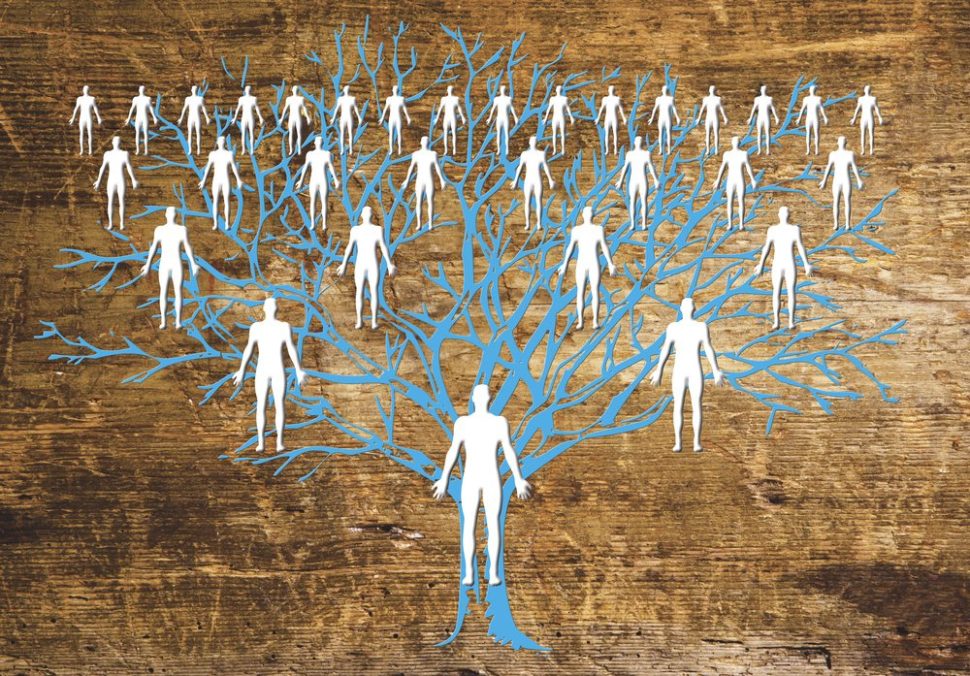Today, we spend a lot of time thinking about our digital fingerprints and what we leave online. But, should we be spending more time thinking about our own physical fingerprints?
Going further, what about your very genes? Are you afraid of exposing them? DNA testing services such as 23andMe and AncestryDNA are a fun way to find out your heritage. But it could come at the price of your DNA.
Are these companies violating your DNA privacy by selling your genes?
Uncovering Genetic History with At-home Kits
Companies such as 23andMe that administer at-home genetic testing kits can produce seriously cool results. Of course, you could also uncover some disturbing facts like Anderson Cooper did for the PBS segment Finding Your Roots.
Regardless, learning about your history requires genetic samples that deliver various answers. You can discern your ethnic heritage, diseases or even health concerns you are most at risk for. Of course, not all kits are created equal. But that is not the main concern to consider when perusing at-home DNA testing kits.

DNA Privacy Goes Beyond Deleting Your Name
Everyone knows that corporations sell data to outside parties. But you would think that a company that deals with DNA instead of ad clicks would be more considerate of data security.
Chuck Schumer, a Democratic Senator from New York, petitioned the Federal Trade Commission to review the privacy policies of these DNA testing services. While the concerns about third-party sales are valid, there is a more insidious implication at work.
While the privacy policies do generally protect user identity information, these companies do nothing when it comes to your DNA privacy. After all, these DNA kits still contain your individual and unique genes. Despite the removal of names and other identifying factors, there is little these companies can do to encrypt DNA.
Right?
The Ramifications of Insecure DNA Testing Services
You might not think that a third party having access to your genes isn’t that bad. Maybe you get more personalized ads since that is usually what happens when personal data is sold to other corporations. However, the implications with DNA privacy are far worse.
Since DNA is unique, you can also connect one person’s genes to any that share certain aspects. Whether it is a family member or simply a member of the same ethnic group, there are identifying factors. In one study, researchers even identified a person’s surname using DNA and free to access, public information on the internet.
Beyond this, the way that DNA testing services deliver results can further complicate the matter. While “anonymous”, the results become aggregated. Your testing kit genes may be lumped in with those of the same ethnic group. Even if your information is not weaponized against you, it could lead to bigger risks for people with similar ancestry.
How Aggregating DNA Results Creates Bias
Bioethicist Art Caplan at the New York University School of Medicine told Live Science that these breaches could impact your family and whole ethnic groups.
Due to more in-depth research of certain ethnic groups, data suggesting that these groups which are more susceptible to certain diseases could be skewed.
This relates to how companies such as 23andMe aggregate genetic results. If you have more volume or more information on one ethnic group than others, those results will be more thorough.
So while Ashkenazi Jewish women are reported to be at higher risk for specific breast cancers, this finding could be false.
We don’t have such thorough results for all ethnic groups. So how can we verify what results we do have due to the aggregation effect?
Furthermore, these kinds of breaches enable and add legitimacy to ethnic discrimination. Specifically with insurance companies which, though there is a government-sanctioned non-discrimination act, have consistently eschewed at-risk patients beyond the “pre-existing condition” stipulation.
Similarly to racial profiling, genetic profiling includes the prediction of certain happenings based on a person’s heritage. And some in government would see the reversal or detrimental changing of previous protections against this for workers.
How to Protect Yourself
There are many cases where the law has not yet caught up with technology. Genetic security is no different, but we need protections now. Given the unrest in government over how third parties should treat sensitive DNA information, we have to hold ourselves accountable, too.
As consumers of these products, we need to demand better, more concrete privacy policies, as well as to be responsible with our information. Cryptography is the best solution.
Previously, DNA encryption was a complete folly. However, recent developments in cryptography mean that we can encrypt most of our genetic information.
“We now have the tools in hand to make certain that genomic discrimination doesn’t happen” said Gill Bejerano, head of the Stanford study working on this subject. You can now submit your genes for research while maintaining 97% of your DNA privacy.
The hope is to see fewer personalized ads or skewed healthcare claims and more advancements in medicine.



















What does that DNA encryption matter? Each human is a walking DNA bank who spreads samples everywhere. Collecting that identified information systematically may be impossible to be prevented in the future.
“Local, State, and Federal law enforcement may collect genetic and fingerprint samples if necessary to resolve crimes, but a warrant must be obtained. If the charges are dropped against the accused or if the accused is found not guilty, all of his or her genetic and fingerprint samples must be destroyed. Any business or organization that collects genetic or fingerprint samples must not release that information unless given permission by the person or required through a government warrant. If those requirements are not met, the business or organization may be subject to civil liability by any individuals affected.”
– A New Constitution for a Free People
this article did not tell me anything about why is it bad for others to know i am a relative of theirs or why solving crimes is bad through that?